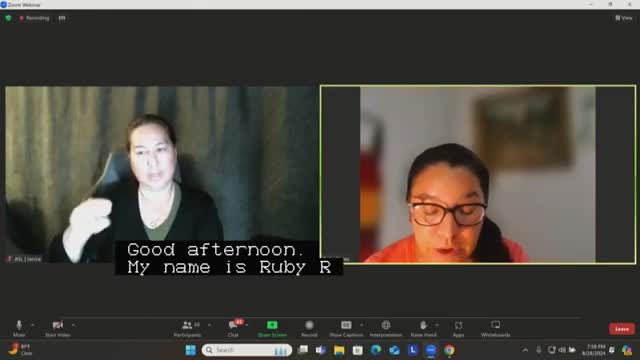Community Outcry Grows Over Superintendent's Leadership Failures
August 28, 2024 | Boston Public Schools, School Boards, Massachusetts
This article was created by AI summarizing key points discussed. AI makes mistakes, so for full details and context, please refer to the video of the full meeting. Please report any errors so we can fix them. Report an error »

In a recent evaluation of Boston Public Schools Superintendent Mary Skipper, community members voiced significant concerns regarding her leadership and the district's engagement with families. The Beja community organized a people's evaluation in June 2024, aiming to establish a consistent platform for community feedback. Nearly 400 comments were collected, highlighting issues of racial equity, communication breakdowns, and staff morale.
Critics accused Superintendent Skipper of perpetuating a \"white-centered narrative\" that marginalizes the voices of Black and brown leaders within the district. Many expressed frustration over the dismissal of family concerns, particularly regarding school facilities and climate. Parents reported that their requests for meetings with district officials often went unanswered, contributing to a sense of neglect and frustration.
A recurring theme in the feedback was the lack of transparency in data reporting. Community members noted that the absence of up-to-date information made it difficult to assess the district's performance and address pressing issues. This lack of accountability has reportedly fostered a toxic work environment, leading to high stress and low morale among staff, with many teachers feeling overwhelmed and unsupported.
In response to these challenges, speakers at the meeting proposed several recommendations aimed at improving the district's operations. Suggestions included revising the Boston Public Schools Code of Conduct to better support vulnerable students, enhancing attendance policies to respect student individuality, and implementing regular performance reviews for staff to ensure alignment with district goals.
The meeting underscored a growing demand for authentic community engagement and accountability within Boston Public Schools, as stakeholders seek to address systemic issues and foster a more inclusive educational environment.
Critics accused Superintendent Skipper of perpetuating a \"white-centered narrative\" that marginalizes the voices of Black and brown leaders within the district. Many expressed frustration over the dismissal of family concerns, particularly regarding school facilities and climate. Parents reported that their requests for meetings with district officials often went unanswered, contributing to a sense of neglect and frustration.
A recurring theme in the feedback was the lack of transparency in data reporting. Community members noted that the absence of up-to-date information made it difficult to assess the district's performance and address pressing issues. This lack of accountability has reportedly fostered a toxic work environment, leading to high stress and low morale among staff, with many teachers feeling overwhelmed and unsupported.
In response to these challenges, speakers at the meeting proposed several recommendations aimed at improving the district's operations. Suggestions included revising the Boston Public Schools Code of Conduct to better support vulnerable students, enhancing attendance policies to respect student individuality, and implementing regular performance reviews for staff to ensure alignment with district goals.
The meeting underscored a growing demand for authentic community engagement and accountability within Boston Public Schools, as stakeholders seek to address systemic issues and foster a more inclusive educational environment.
View full meeting
This article is based on a recent meeting—watch the full video and explore the complete transcript for deeper insights into the discussion.
View full meeting
